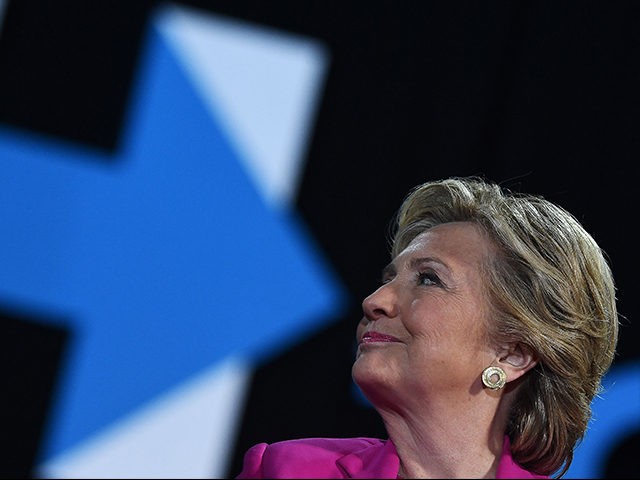Hillary Clinton’s claim on Wednesday that she lost the 2016 presidential election in part because of the proliferation of “fake news” is contradicted by an extensive study that found so-called fake news didn’t significantly impact the outcome of the election.
That study recently received a positive nod from the Poynter Institute, the group helping Facebook determine whether certain news stories are “disputed.”
Speaking at the Code Conference in Rancho Palos Verdes, Calif., Clinton claimed that she lost the election due a plot in which so-called fake news was disseminated on social media in a conspiracy orchestrated by Russian agents and bots.
“Here’s what the other side was doing, and they were in a different arena,” she stated, according to a transcript from the event organizers. “Through content farms, through an enormous investment in falsehoods, fake news, call it what you will.”
Without citing evidence, Clinton claimed that “1,000 Russian agents” were behind the conspiracy to disseminate fake information about her:
The other side was using content that was just flat-out false, and delivering it in a very personalized way, both sort of above the radar screen and below. And you know, look, I’m not a tech expert by any stretch of the imagination. That really influenced the information that people were relying on. And there have been some studies done since the election that if you look — let’s pick Facebook. If you look at Facebook, the vast majority of the news items posted were fake. They were connected to, as we now know, the 1,000 Russian agents who were involved in delivering those messages.
Clinton’s claim that voters were influenced by so-called fake news contrasts with a study titled “Social Media and Fake News in the 2016 Election,” co-authored by economists Matthew Gentzkow of Stanford University and Hunt Allcott of New York University. The research utilized web browsing data, a database of what the authors claimed were fake news stories and a 1,200-person online survey about news trends.
The study concluded:
Our data suggest that social media were not the most important source of election news, and even the most widely circulated fake news stories were seen by only a small fraction of Americans. For fake news to have changed the outcome of the election, a single fake news story would need to have convinced about 0.7 percent of Clinton voters and non-voters who saw it to shift their votes to Trump, a persuasion rate equivalent to seeing 36 television campaign ads.
Poynter’s Chief Media Writer James Warren reported on the study:
In sum, they conclude that the role of social media was overstated, with television remaining by far the primary vehicle for consuming political news. Just 14 percent of Americans deemed social media the primary source of their campaign news, according to their research.
In addition, while fake news that favored Trump far exceeded that favoring Clinton, few Americans actually recalled the specifics of the stories and fewer believed them.
“For fake news to have changed the outcome of the election, a single fake article would need to have had the same persuasive effect as 36 television campaign ads,” they conclude.
Aaron Klein is Breitbart’s Jerusalem bureau chief and senior investigative reporter. He is a New York Times bestselling author and hosts the popular weekend talk radio program, “Aaron Klein Investigative Radio.” Follow him on Twitter @AaronKleinShow. Follow him on Facebook.
With research by Joshua Klein.

COMMENTS
Please let us know if you're having issues with commenting.